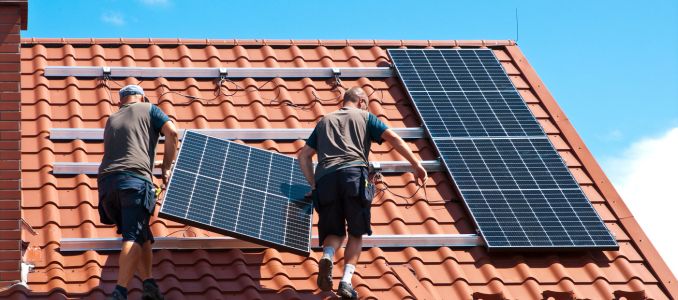
EGLE Awards $7.9 Million in Solar for Savings Grants to Launch MI Solar For All Pilot Projects
Eight solar energy projects across Michigan selected to help low-income communities reduce energy costs and improve resiliency.
- By Stasia DeMarco
- Jul 15, 2025
The Michigan Department of Environment, Great Lakes, and Energy (EGLE) has announced $7.9 million in preliminary awards through the Solar for Savings (SFS) grant program, launching the first eight pilot projects under the MI Solar For All (MI SFA) initiative.
The SFS program is part of the MI Healthy Climate (MHC) Challenge, a multi-round grant competition designed to drive clean energy deployment and investment across the state. These first-round recipients represent a mix of residential rooftop and community solar projects aimed at lowering energy costs, boosting energy resilience, and expanding solar access for low-income households.
“These pilot projects are essential to building out Michigan’s clean energy future in an inclusive, equitable way,” said officials at EGLE’s Office of Climate and Energy (OCE), which administers the program.
Residential Rooftop Solar Projects
- Hope Village Revitalization (Wayne County): Retrofit 10 homes in Detroit and Highland Park with rooftop solar, battery storage, weatherization, and high-efficiency heat pumps. The program will eventually scale to 100 homes.
- MiSide Housing (Oakland County): Install solar on a 60-unit multifamily building serving vulnerable seniors, using solar benefits to fund a part-time resident service coordinator.
- Superior Watershed Partnership (Upper Peninsula): Deploy solar at 15 low-income homes across the U.P., with at least five systems including battery storage for critical-care customers.
Residential-Serving Community Solar Projects
- City of Benton Harbor (Berrien County): Install solar at city facilities with energy credits benefiting eligible low-income residents through water bill offsets.
- Hillsdale Board of Public Utilities (Hillsdale County): Construct a ground-mounted solar array at a local airport with pollinator-friendly landscaping, benefiting low-income utility customers.
- Inter-Tribal Council of Michigan (Chippewa County): Install solar and storage for 12 homes and a community building to support tribal resiliency and energy affordability.
- Lowell Light & Power (Kent County): Install educational solar canopies at a public park, with community opt-out energy bill benefits.
- North End Woodward Community Coalition (Wayne County): Expand the “Solar Neighbors” initiative using community-owned solar via a trust.
These pilot projects are expected to inform the full rollout of MI Solar For All, a federally funded program supported by $156 million from the U.S. Environmental Protection Agency’s $7 billion Solar for All competition. Households participating in MI SFA are expected to see an average 20% reduction in electricity bills through direct financial assistance, energy storage, and efficiency upgrades.
The state initially budgeted $8.875 million for SFS but has authorized up to $20 million more to fund additional pilots. While the first two rounds of applications are closed, round three is open until Sept. 30, 2025, with awards made on a first-come, first-served basis. Applicants who were not selected in previous rounds will remain eligible.
Looking ahead, the MHC Challenge will offer additional grant opportunities to help communities leverage federal incentives, expand green lending, and unlock large-scale climate finance solutions. Eligible applicants will include local governments, schools, nonprofits, community lenders, solar developers, and other partners.
To apply or learn more, visit: Michigan.gov/MHCChallenge
About the Author
Stasia DeMarco is the Content Editor for EPOnlne.